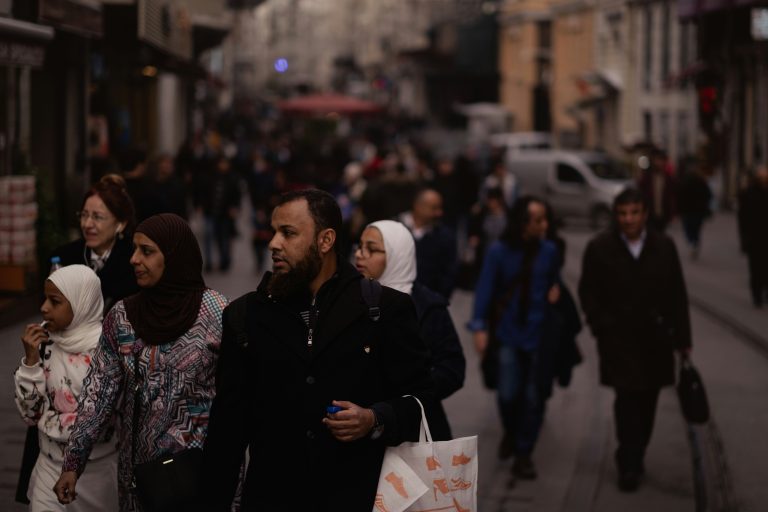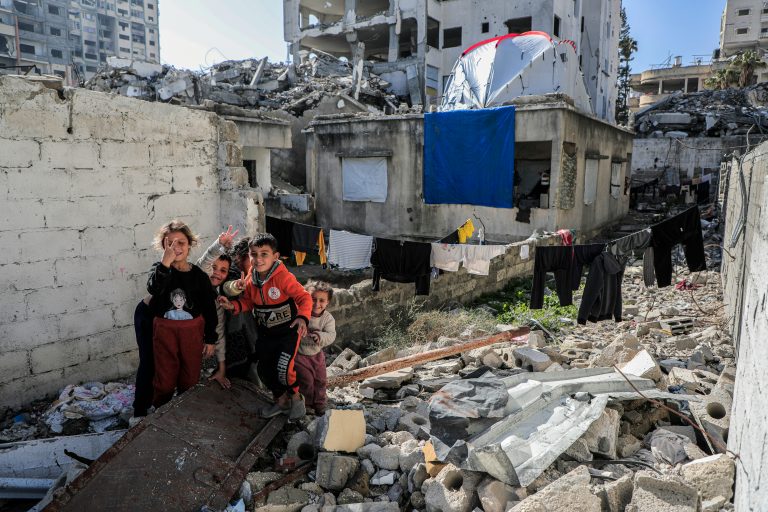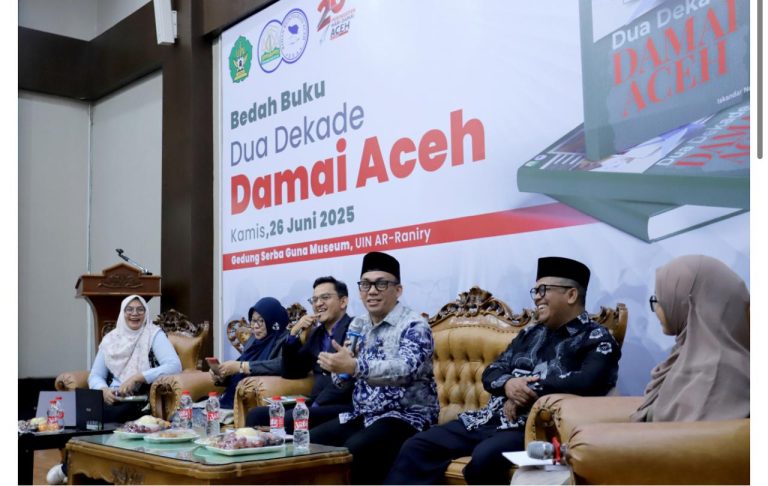
Introduction
I am intrigued by the upcoming Aceh Pilkada in 2024 and its potential impact on this essay. Notably, only two pairs of candidates will compete in the provincial election. These pairs comprise individuals who are highly regarded as the most qualified leaders in Aceh and are believed to have the ability to govern the province effectively for the next five years.
In this context, I will refrain from discussing the outcome of the Pilkada in Aceh. Instead, I will elaborate on the potential implications if a specific pair prevails in the upcoming regional head election in Aceh this November.
It is worth noting that the current political dynamics appear favourable to the Prabowo Government, with Prabowo’s impending inauguration as the President of the Republic of Indonesia on October 20, 2024. The Gerindra Party is endorsing its members to participate in the Pilkada, while the Aceh Party is also nominating its top leader as a candidate. This party’s gubernatorial and deputy gubernatorial candidates are Muzakir Manaf and Fadhlullah.
In another aspect, their competitors are an Aceh technocrat and a former Senator of Aceh, who are considered capable of becoming rivals for the pair above. Initially, these figures chose the figure of an Acehnese cleric, Tu Sop, who was considered capable of winning the hearts of the Acehnese people. The names of the gubernatorial and deputy gubernatorial candidates from this group are Bustami Hamzah and Fadhil Rahmi.
In this context, I want to see what happens after one of the pairs above wins the political contest in Aceh. I want to share some conditions when one pair wins the Pilkada. Some of these may only sometimes happen, but considering the dynamics of local politics in Aceh, which constantly fight for power to strengthen influence in this province,.
Post-Victory Fuss
As usual, victory in the Pilkada has two stages: “Winning who is won” and “winning who is considered to have won.” Usually, on the first night of the Pilkada, the winner can be known through various methods, from reports in the field on the spot or quick count patterns. Therefore, candidates who have already “won who won” will sometimes experience their first political panic.
What is meant is that panic occurs not because of a disaster but instead because of quickly reorganizing the strength that has been solid so far. Each group will start telling stories of their greatness in winning the Pilkada process after process. Likewise, the more fantastic the story is, the more it will show who will be in the “ring one” of power in the future.
This is where the disease of the first panic appears when everyone competes to tell stories of their services while fighting towards victory. Their greedy human nature is increasingly apparent. The way they look at other people. Communication patterns are increasingly guarded because they are considered to be entering the “ring one” of power. Drastic lifestyle changes because they assume they will get much money later. Those who have spent material have also calculated the capital and profits they want to achieve over the next five years.
All of the expectations above then begin to cause conflict between them. What used to be “us” turns into “them.” Suddenly, there are many “them” among the “us-us.” The winning candidate is increasingly isolated from the crowded area. Their families have also dreamed of all the facilities that their families will get. The Core Team has also been busy filtering who is worthy of meeting the Winner.
This first panic condition is prevalent in Aceh. When this first panic is managed, two weeks after the inauguration, what was previously “them-them” among “us-us” changes into a split partnership between the Governor and Deputy Governor. Finally, a hierarchy emerges to facilitate interests in the Governor and Deputy Governor circle. It is not surprising that there is “ring one,” “ring two,” “ring three,” and so on.
Because of all the interests resulting from the first panic, each “they” in “us” begins to compete to approach the figure most trusted by the Leader. He is then the one who becomes the “Shadow Ruler” in the uncertainty of “them” and “us.”
The emergence of the hierarchy and the role of the “Shadow Ruler” to secure “the Leader” worsen the situation. From the beginning of the campaign of praising each other, it will change to cursing or swearing at each other. From the beginning of mutual loyalty, there will be an attitude of mutual slander.
Within a year, those who are unsuccessful will be “removed” from the hierarchy of power in the circle of the Leader. He will go in and out of coffee shops. He is revealing his intelligence during the campaign. His services are only to the elected Leader. Then, later, saying that everyone in the circle of the Leader is the wrong person, if not ungrateful.
The “Shadow Ruler” will become increasingly difficult to contact. He doesn’t want to respond when called, and sending a message is like speaking to a wall. Everything becomes quiet because the “Shadow Ruler” is busy sorting and choosing who can be close to the Leader. The “Shadow Ruler” acts as an intermediary between “outsiders” and “insiders,” living off the services he provides. Whenever he meets someone he had contact with during the campaign, he always avoids meeting them. This is the impact of the initial panic after the euphoria of victory is over. This fact became the story of Aceh’s political ethnography in a coffee shop in Aceh. Therefore, never expect any change from the impact of the first panic when the Leader wins on the first night of the Pilkada.
Chaos When Determining the Cabinet
Determining who will fill the Cabinet for Aceh’s next Governor and Deputy Governor is the most exciting thing. Usually, a person who has access to “The Leader” and the “Shadow Ruler” will be busy receiving various offers of names to enter the cabinet. This is precisely what happens in the central government. However, several departments considered “wet” and “dry” have long been mapped out in Aceh. Which departments can be for “ATM” and only for “peh them.”
Therefore, all cabinets for the New Leader of Aceh will be targeted in various ways to obtain wealth from development projects, from the provincial to the district/city levels. Therefore, dismantling and reassembling leaders in related departments, as part of Aceh’s development, has become very difficult. It is difficult to say that it will bring Aceh to a better situation in the following years. Usually, at this stage, the candidates for cabinet members in the Aceh government already have sufficient capital to hope for the seats they will get.
Here, sometimes, the chaos begins with the “orders” of the supporting political parties, both in and outside parliament. Each interest begins guerrilla to determine the best candidates to represent their interests. The pattern of “depositing here and there” often occurs. The price of one seat in the department is sometimes not cheap. Everyone displays a good face in public. Holiness is also shown. Authority is displayed. The style of speech is also arranged so well. Because to become an official, you must have good personal development qualities.
However, the cabinet candidate is busy meeting and “drinking coffee” at night, so the Ruler chooses him. The test for the position is only a formality. The media is called to report. Intellectual figures are invited to test to show quality. The clerics are asked to give their religious “stamp” on themselves. All are done to say that the process according to the rules has been completed.
Regarding the results, we determine. In the parliament building, they are busy formulating strategies for factions and political parties to pass the figures who become champions. The “Shadow Ruler” acts like a “political bartender.” He swings here and there. The more promises that can be hung, the sweeter the “political drink” served to the Leader. The narrative above is not only in Aceh but almost throughout Indonesia.
Therefore, when the heads of offices are appointed, they do not think at all about the welfare of the people. He must satisfy all the “lust for power” that has done him a favour. The bosses who funded him must have their capital returned. If there are programs, political figures must be compensated. Those who have done favours behind the scenes must be given a “cake” from programs in the coming year. Since then, the “us” and “them” in conflict above have terrorized the heads of departments in various ways and patterns.
Some want to get a favour in return. Some want to offer “services” that are subcontracted to their relations. All “us” and “them” will chase the heads of departments wherever they go because they think they have done a favour to the Leader. Finally, the head of the department also began to be terrorized.
Proposals came in one after another. Visitors never stopped. Wherever he went, there was always someone “waiting.” For those who were experienced, he would also create a “Father’s Person” pattern as part of the power hierarchy to seek a morsel of rice in the department from “us” and “them.” They will sow promises. Then “us” and “them” people wait. Every year, apparently only “Father’s People” can enjoy it. Here, once again, never expect the Aceh Government’s development programs to be able to free the Acehnese people from all difficulties. Because “us,” “them,” “Shadow Rulers,” and “Father’s People” have competed first to enrich themselves.
Fighting for the Meu’en Proyek
This section closely resembles the preceding one, albeit with a requirement for the competition regarding the project to be transparent to the public. The central focus lies in how the leader and the “Shadow Ruler” uphold a sense of equilibrium. In Aceh, “meu’en proyek” (playing a project) is widely recognized and utilized across hierarchical levels, from top leadership to subordinates.
The term meu’en has led to the development project being perceived as insignificant and incomplete, lacking seriousness and appropriate quality. Even if the project is completed, its quality could still be improved. Those who win the project may choose to finish it or share it with others.
The initial panic has resulted in various multi-interest groups, each with its interests. Unsurprisingly, this has led to a complex web of government intrigues as these groups continue to seek benefits from all available sources.
As a result, the “fighting” pattern may not be overtly visible in the public domain, as this “chaos” tends to manifest quietly. It’s common for these groups to hold each other’s interests hostage, with religion not being a prioritized measure or standard.
The ongoing failure to achieve comprehensive development goals is attributed to the influence of the “Father’s Man,” orders from the “Shadow Ruler,” or the leader’s approval. This has led to the development budgets being funnelled into various “pockets.”
If these actions are not carried out discreetly, their exposure to the public will inevitably lead to increased news coverage, with journalists and officials focusing on problematic projects. Therefore, efforts must be made to avoid brushing and elbowing each other.
For those who have made promises and were given a “down payment,” it is common to demand and look for a “backup ” when their agreement does not match.
The impact of the meu’en project in Aceh sometimes does not significantly affect the quality of development in Aceh. As a result, development in Aceh seems to follow a relatively ineffective pattern, where efforts are focused on repairing culverts repeatedly.
The emergence of a broken-hearted Success Team that gathers in coffee shops can lead to conflicts within the leadership hierarchy. This can result in the consolidation of opposition within the circle of power, which is then used to undermine the government’s authority.
Various operations are carried out to separate the successful teams of the gubernatorial and deputy gubernatorial candidates. These actions weaken the leader’s control, especially during the campaign period.
In such situations, the “compassion” policy may be handed over to a “Shadow Ruler” to resolve conflicts, introducing a new source of conflict in Aceh. The “Shadow Ruler” manipulates promises and political drama to secure the Leader’s position.
Suppose the Governor and Deputy Governor are successfully separated. In that case, the “Shadow Ruler” will be fully loyal to the Governor alone. At the same time, the Deputy Governor becomes a symbol without material power within the Aceh government’s circle of power.
When the Success Team becomes noisy and clashes in the field, it inevitably disrupts development progress, especially if the conflict is closely related to loyal supporters of a particular party.
This pattern of development disruption has occurred frequently in Aceh. Minor conflicts often arise due to the unsatisfied material desires of certain groups, both inside and outside parliament, leading to a hostage situation regarding Aceh’s development interests.
Fighting as if supported by “strong people” in Jakarta
One unique aspect of power dynamics in Aceh is that several groups connect with influential individuals in Jakarta. These groups seem to have access to accurate information, such as insights from the presidential palace circle, people close to the chairman of the National Party, and individuals with ties to intelligence agencies. Some of these figures have a significant influence on Jakarta.
Their names are often mentioned to either bolster arguments or intimidate political opponents. Invoking prominent figures from Jakarta is frequently used to exert pressure on political rivals in certain situations. Acehnese individuals in Jakarta are often perceived as influential and connected to specific circles.
Several groups function as intermediaries for various interests, acting as power brokers for specific factions in Aceh. Intimidating each other with “A1 news” is a common feature of political discussions in coffee shops.
I have heard stories that often start with “Is this a secret?” or claim to provide “A1 info” that is highly valuable. “Strong people” in Jakarta then utilize their connections in Aceh for political gain, including exerting pressure, securing positions and projects, and intimidating rival groups.
Even the “strong people” in Banda Aceh demonstrate their influence by demonstrating their ability to reach specific power circles within the province. At a lower level, individuals from Jakarta and the provincial capital use subtle tactics to gain access to regional projects.
Since 2009, I have been acquainted with Aceh after completing my travels. The influence of these “strong people” has hindered Aceh’s development and continues to do so today. They can obtain information about projects from various sources and exploit them for their benefit.
Conclusion
Based on the above description, it seems unlikely that we, as the people of Aceh, can expect significant development following the 2024 Pilkada. For nearly twenty years, development in Aceh has had little impact on the people’s welfare. This confusion stems from the emergence of various factions, power struggles, and strained partnerships within the political leadership, leading to manipulations in allocating funds intended for the welfare of the people of Aceh.





